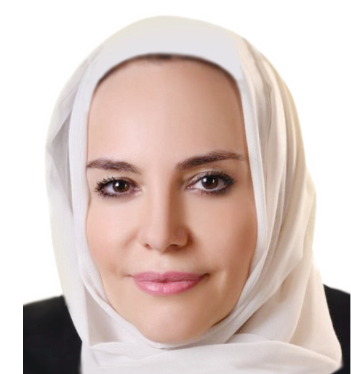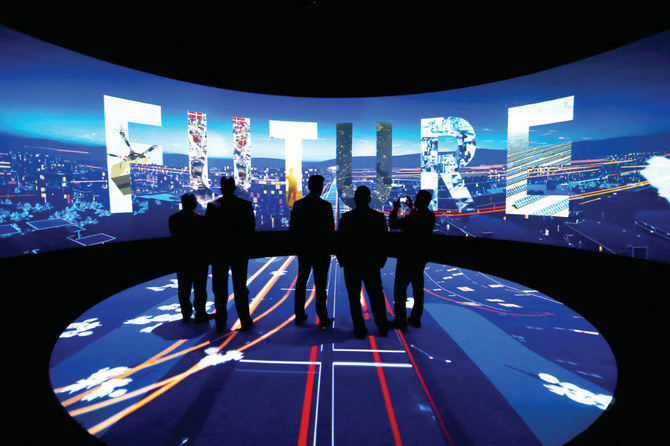RIYADH: There’s no doubt that supporting local Saudi businesses has been a target for many industries in the past few years. It has gained even more attention now due to the launch of the Made in Saudi Arabia project.
Supporting national products has been a focus for up-and-coming companies, but with the Minister of Industry and Mineral Resources Bandar Al-Khorayef’s recent announcement regarding the launch of the project, to increase the growth of national industries and to pursuance consumers to turn to them, academic, economic and industrial experts have emphasized the importance of the timing of the project.
Dr. Lilak Al-Safadi, the president of the Saudi Electronic University, pointed to the UN Industrial Development Organization report 2020, which described the Kingdom as one of the states most actively engaged in advanced digital production technologies.
“The report was published after in-depth research efforts with the participation of global research centers and academic institutions. The rapid development of digital production technologies such as the Internet of Things, artificial intelligence, big data analysis, clouding, automation etc., make drastic changes to the nature of industrial production while enhancing comprehensive and sustainable industrial development,” she explained.
National universities should play a role in enhancing entrepreneurial and innovative skills, and ensuring that the programs and courses are up to date with latest industrial trends. The faculty of academic institutions should support locally made products that are based on innovation, as such action can help universities play a complementary role with the industry sector.

Dr. Lilak Al-Safadi
“In light of the advantages of using technology in the industrialization process, the Made in Saudi Arabia project will bring strategic benefits to the industry sector, and help universities build partnerships with local and international companies to promote digital industrialization development and research. This will also help in designing sustainable products,” added Al-Safadi.
Hassan Alwatban, an economic consultant, underscored the importance of the Made in Saudi Arabic project, especially in light of the fact the Kingdom has achieved major progress in terms of infrastructure and other development goals. Today, an investor can make safe investments knowing that the government provides full support to ensure all sectors are being developed constantly.
“The protection of local industries is essential for this project. Taxes and levies should be imposed on foreign and imported goods because these act as a stumbling block in the way of national industrialization and might contribute to its failure if no action is taken,” he said.
Second to education, experience is key to the success of any product, let alone a Saudi product. The consultant went on to say that Saudis should gain foreign experience and to promote their products.
“We need to find ways and approaches that help reduce production costs because if the prices of domestic products get higher, this will have an impact on the continuity of the national factory. In this case, the foreign product will replace the Saudi one. One of the ways to reduce production costs is to ensure the easy access to national products across the country in all cities,” he explained.
In order to ensure continuity, Alwatban suggested that having a strategic partner could help Saudi products survive in an ever-changing market.
“No matter how big the capital is, it might be affected when the project gets through difficult circumstances. With the help of the strategic partner, the Saudi product can survive all obstacles and difficulties,” he added.
Tareq Al-Akil, president of ACE group, stressed the importance of encouraging individuals to run small independent businesses, noting that there should be service centers that act complementary for certain industries as well as centers for data collection.
Al-Akil, who has three decades’ experience in different business sectors, called for maximizing local resources to benefit society. He said these included an increase in income, decrease in unemployment and maintaining liquidity, whilst enhancing the GDP.
“It is logical to start small then get big over time after gaining experience, controlling the cost and identifying the distribution channels. The stereotypes associated with industrial entrepreneurs have changed and are no longer negative,” he said.
Dr. Abdullah Al-Alakel, an innovation researcher, said it was important to have a roadmap for localizing technologies and making the best of previous experiences.
“In order for these projects to be successful, both the public and private sectors as well as universities should work together to come up with something innovative. Each sector plays a pivotal role related to its field, be it development, innovation, infrastructure, laws and regulations. All involved sectors can cooperate to remove any obstacles encountering the industrial sector. Determination and complementary work are the only way to achieve the sought-after goals,” he pointed out.
Some organizations, businesses and universities do have previous experiences that can be helpful in this regard, such as King Abdul Aziz City for Science and Technology, which has come a long way in localizing certain technologies, including military applications, solar energy and satellites, along with software applications. Other examples include SABIC, farming companies, King Fahd University of Petroleum and Minerals, King Saud University and King Abdullah University for Science and Technology.
“They all have experience in petroleum industries. Besides, the Kingdom’s Vision 2030 aims to find ways for mutual collaboration among all sectors. This is something important,” he said.

























